Hula, STD app, offends; KSM alumni circulate petition
Photo by Ka Leo o Nā Koa staff
Approximately 1,200 k-12 students and most of the Kamehameha Maui staff perform a farewell hula, Feb. 9, 2014, in honor of Hawaiian cultural unity and in recognition of the retirement of KS CEO Dee Jay Mailer. Three Kamehameha Maui alumni have started a petition to change the name of a sexually transmitted disease social computer application named Hula, which, they say, “… seems distasteful in light of the fact that STDs, along with other foreign diseases contributed to the decimation of the 300,000 [Hawaiians who died from disease post-Western contact].”
Since the release of the mobile application named Hula, some people have been offended by the name. The perceived slight led three recent Kamehameha Maui alumni to post an online petition on the website Change.org. The petition calls for Hula CEO Ramin Bastani to change the name of the app. ![]() Loading ...
Loading ...
“We realized that it was up to us to do something about the app or no one else would,” KSM alumna Gala “Kaio” Tubera (’11) said. Tubera, along with Alexander “Alika” Guerrero (’12) and Kelly Luis (’11), posted the petition in February.
Hula is an iOS app that helps people find sexually transmitted disease testing centers, obtain test results online, and share STD statuses. Bastani intended the app to promote better sexual health.
“I started the company in 2010 because a girl slapped me in the face after I asked if she’d been tested…there has to be a better way to have this conversation,” Bastani said on the Hula website.
Many were offended by the use of the phrase “because it gets you lei’d” in marketing materials and presentations. Bastani has said that the company has removed it from all marketing, but they continue to refuse to change the name of the app.
Hawaiians were quick to attack the company citing its cultural insensitivity. The petition comments show that it has also garnered support from people who are or have been in Hawaiʻi and people who appreciate Hawaiian or native cultures. As their place of residence, supporters have listed US states from Florida to Alaska. There are also comments from Canada, Mexico, France, Brazil, and Poland.
Tubera said they oppose the presumption that the Hawaiian culture is being commodified, treated as a commodity for monetary profit.
“They (the Hula app team) have been made aware of the fact that they are indeed offending our culture and they still have not changed the name,” said Kumu Henohea Kane, Kamehameha Maui Hawaiian Language, Hana No‘eau, and Hula teacher.
Once the mainstream media picked up on this story, Guerrero, Tubera, and Luis’s petition started gaining in strength, going from just a little over 1,000 signatures midweek to almost 3,000 at the time of this writing. Their goal is 100,000 supporters.
“We (teachers) try to give all of our haumāna [students] the proper tools that they need to be leaders and independent thinkers. This is a prime example of what we hope our graduates would be able to do once they leave Kamehameha,” Kumu Henohea said.
Bastani has said that he named his app Hula because it was a way of communication, and he believes his app helps people communicate about STD’s.
The petition explains that hula is “a sacred art form of the Hawaiian people.” The alumni have also said they have no opposition to the app itself, just the name. They don’t approve of the Hawaiian culture being used to promote the app, which seems unrelated to Hawaiʻi even though Bastani has tried to draw a relationship to hula as a communication tool in interviews.
“They (the Hula app team) are naïve to the importance and complete function that hula has in our Hawaiian culture, for that I do not blame them,” Kumu Henohea said. She explained that the company chose Hula as the name because they only were focused on one function of hula.
Kumu Henohea said she is still undecided about whether she will sign the petition or not because she is unsure of how much of an impact she wants this situation to have on her.
Other kumu hula (hula instructors) and hula practitioners have signed the petition and added their own thoughts through comments posted there.
“To me… hula is an extremely sacred medium of spiritual expression/communication. To have the word ‘hula’ associated with your app… is highly inappropriate and is a blatant form of cultural misappropriation,” Kumu Hula Cody Pueo Pata of Hālau Hula Ka Mālama Mahilani commented.
“This is offensive and exploitive of the essence that everything hula is and is connected to,” said Kumu Hula Kehaulani Kekua. Her comment had the most “likes” as of this writing.
“… the use of Hula is offensive and insensitive,” hula practitioner Kanoe Cazimero commented on the petition website.
People can only leave comments on the petition if they sign it, so all of the comments are for the name change.
Some Kamehameha Maui students’ names appear there as well.
“This is very disrespectful for the Hawaiian race,” freshman Selai Damuni said in her comment.
In his response to the petition, Bastani has said he is speaking with Dr. Diane Paloma, the director of the Native Hawaiian Health Program at Queens Medical Center in Honolulu, to get a better understanding of hula as a cultural dance.
While we have no opposition to the app’s functions and purpose, we do not believe that our beloved culture practice should be exploited to ensure the app’s success.
— Alex 'Alika' Guerrero, Gala 'Kaio' Tubera, and Kelly Luis
In The Huffington Post‘s article on the topic, author James Cave said Dr. Paloma had pointed out that the irony of the name was that “the Hawaiian population experienced considerable demise after Westerners introduced infectious diseases – such as venereal disease – to the islands.”
With supporters of the name change growing, Bastani seems determined to keep the name Hula for his app. Yet, the petition’s three Hawaiian authors, now college students, say they will not rest until the name is changed to something less culturally offensive.
“We want to educate others about cultural appropriation by using the app as an example. Hopefully the change in their (Hula’s) name will be the first step in healing wrongs done to native peoples everywhere,” Tubera said.
Tubera, a former Ka Leo o Nā Koa editor, is now a student at the University of Rochester, New York.
Guerrero is an accomplished, lifelong hula dancer and winner of the overall kāne title at Hula o Nā Keiki 2011. He currently attends the University of Hawaiʻi at Hilo.
Luis was an active student leader and president of the National Honor Society at KS Maui and is now a student at Columbia University.
UPDATE 5/9/14: The Huffington Post reported on 5/6/14 that Ramin Bastani, founder and CEO of Hula, has agreed to change the name of the app for reporting sexually transmitted diseases.
Text of the petitition at Change.org:
While it cannot be denied that Hula, the mobile STD alert app, is a monumental step towards STD awareness and protection, the people of Hawai’i and their supporters must make their voices heard in regards to the marketing campaign used to promote your product. By this petition, we as a people reach out to Hula and its CEO, Ramin Bastani, in the hopes that our pain and concerns will be addressed. Using Hula (because it gets you lei’d) as the premise for the product harms Native Hawaiians everywhere.
Through the writings of early settlers and missionaries in the islands, the idea that Hula is simply a sexual and savage expression has led to an orientalist view that is constantly propagated throughout popular culture. The hula girl stereotype not onlyreduces Hawaiian women to purely sexual play things, but it presents the idea that theembodiment of Hawai’i and its culture is childlike and primitive.
In actuality, hula was and still is a sacred art form of the Hawaiian people. It recounts the history of our people, beginning with the initial migration from East Polynesia until now in the 21st century. The stories speak of the great deeds of the commoners, the chiefs, and the gods. The stories depict every element and aspect of our environment and remind us that everything is interconnected and interdependent.
The arrival and teachings of the Calvinist missionaries from the American Board of Commissioners for Foreign Missions (ABCFM) in 1820 destroyed our religious foundation, and hula was outlawed. For over 60 years it was taught out of sight and only by a select few amongst close family members. Public performance was seldom seen. In 1883, King David Kalākaua said, “Hula is the language of the heart, and therefore the heartbeat of the Hawaiian people.” At the king’s coronation in 1883 and later at his jubilee, the hula performed there initiated the start of the cultural renaissance.
The subsequent years would slow that progress. In 1893, the Hawaiian kingdom was overthrown by wealthy plantation owners, who were the descendants of the Calvinist missionaries who came to Hawai‘i. In 1896, the Hawaiian language was banned from educational institutions. Finally, the kingdom of Hawai‘i was annexed to the United States in 1898. Following this, hula and Hawaiian culture served as entertainment for tourist in what some people call “cultural prostitution” as the stereotype of the always welcoming and accommodating hula girl became the world’s idea of Hawai’i.
In the 1960s and the 1970s the cultural revival began anew. Hawaiian language and culture were being relearned, and Hawaiians begged to know their history. Hula became a focal point because it is the Hawaiian art form that holds our language, history, music, and traditions. The Merrie Monarch, the most prolific hula competition in the world, began in 1963 and many competitions soon followed. Hula has spread worldwide and many students of all nationalities and ethnicities are learning it. Here in Hawai‘i, hula remains an unbreakable connection to our ancestors. It is a resistance from conformity and an essential part of our cultural identity.
In addition to the implied appropriation of a cultural practice that means so much to Native Hawaiians, the use of our culture in regards to STD awareness seems distasteful in light of the fact that STDs, along with other foreign diseases contributed to the decimation of the 300,000. However, the arrival of Europeans exposed Native Hawaiians to foreign diseases such as gonorrhea and syphilis, which consequently caused death and infertility. As a result, the Native Hawaiian population dramatically declined and in the late 19th century the population was reported to be as low as 40,000 people.
While we have no opposition to the app’s functions and purpose, we do not believe that our beloved culture practice should be exploited to ensure the app’s success. Thus, we urge supporters to stand with us in solidarity in requesting Hula’s CEO, Ramin Bastani, to change the name of his STD alert app.

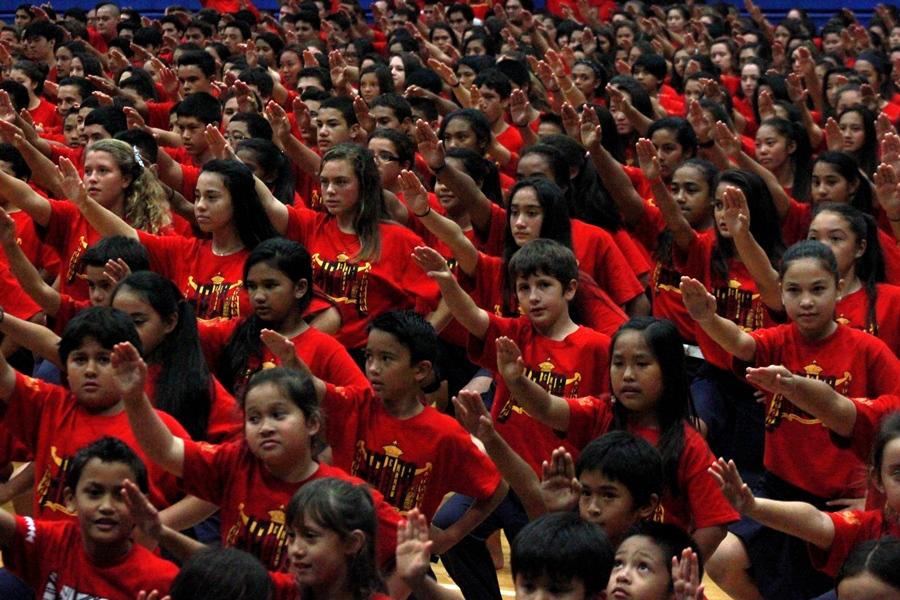

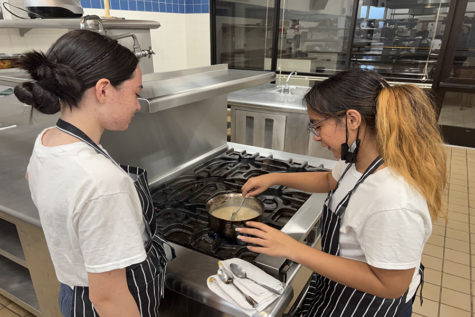

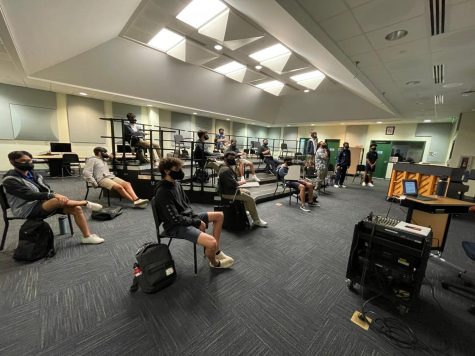
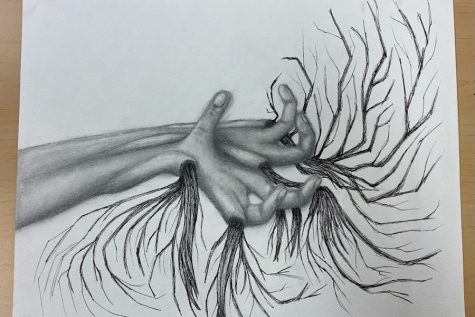
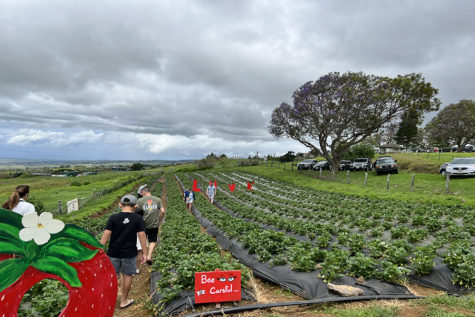
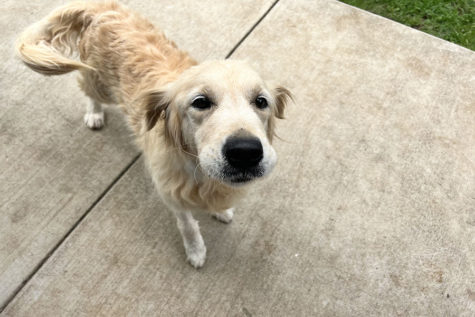

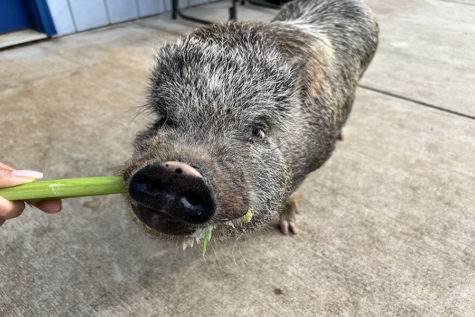
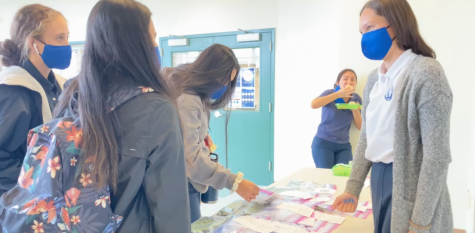

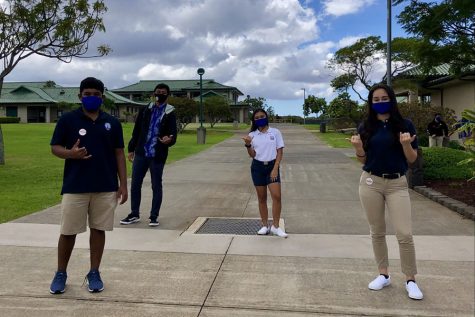
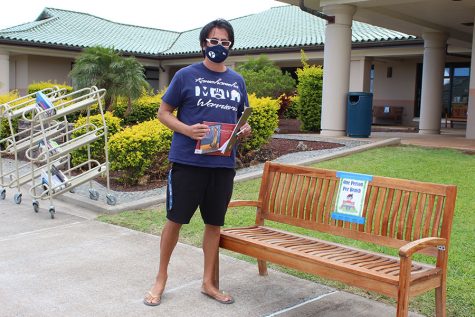
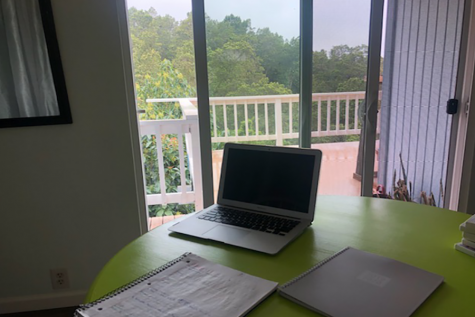
Kaulike Pescaia • Apr 5, 2014 at 9:09 pm
People need to do their homework. This is similar to Safeway at Maui Lani. People do things without considering the mana behind it-the Hawaiian culture. When you disrespect the Hawaiian culture, you can guarantee that there will be a form of retaliation, whether it be from the person in this world, or the other world. But that doesn’t phase them. They don’t care. Why? Some people are very naive, and need to learn how to have respect for Hawai’i and her people, here today and not here today. However, I don’t think they intend to disrespect, but they do not realize what they are doing. It is very disrespectful, and should have been thought through. This is an utter disappointment. I hope the creator realizes how many people are effected by his stupidity.
Kapulani Antonio • Apr 3, 2014 at 7:32 pm
These days we Hawaiians do get bent out of shape for every little thing but I must say that I support the efforts of the three KS Maui alumni – Kelly, Kaʻio & Alex who are spearheading the effort to insist that Hawaiians and our culture are not misrepresented. Yay for activism! It does raise the larger question of who owns culture& who has the power to decide what is and is not appropriate. It also makes for some interesting discussion and debate!
Leimana Hassett • Apr 2, 2014 at 11:06 pm
In light of the debate between the “Hula” app and the Hawaiian community members, I think that the app name is unnecessary. It is understandable to connect the concept of hula and the program as being both ways of communication, because it is a valid argument. However, that is the only solid notion that I see, I do not think that “hula” is the right term for the function of this app. There are so many other words and languages that can be used in place of “hula”. The word is used in an inappropriate context. Surely there is a better way of going about this that would benefit Bastani and avoid further conflicts with other cultures. The main problem with this advertisement starts off with the revoked tag line “getting lei’d” which hits the Hawaiian community as insulting and unnecessary, but then it is a commodity that creates a down-graded rep for the Hawaiian culture. The circumstance is very bizarre, and I think that there isn’t a very strong argument to keep the term “hula” for an app that is for STD communication. When a name is given to anyone or thing, everything that is commonly connected to the name is then tied to that person or thing, so the “Hula” app that was once advertised to “get you lei’d” now has the whole image and culture of Hawai’i tied to sex and even to the sexually transmitted diseases. The name may not seem like a big deal, but the approach was ignorant and disrespectful. I don’t believe that Bastani and his team were intending to be disrespectful or careless, I think that it was just a clever connection that was humorous to those who do not realize the importance of hula.
Macie Tawata • Apr 2, 2014 at 10:05 pm
Most Hawaiians have heard of this app and the controversy surrounding it. They are very against the use of the word ‘hula’ in this context. Before I could even read this article, I had already made up my mind as to whether or not I supported our alumnus. Of course I jumped on the bandwagon and supported them like everyone else around me. Ever since the beginning I was taught to always defend our culture because of the wrongs that were done to us by the missionaries. But then I read this article and decided to jump off.
Why are we so against the use of the word hula? Is it because this is a non Hawaiian man using a Hawaiian word? If this is the case, maybe we should just ban all non Hawaiians from saying Hawaiian words. Would we go to the extreme of only letting people of Hawaiian blood greet each other with an aloha? Or is it because Hula will now be associated with STDs? Maybe we’re all still a bit sour over the fact that the missionaries that came long ago spread STDs along with other diseases to our people, subsequently killing the majority of the population. Whatever the case, what we don’t realize is that this app is a giant step forward for STD awareness. I recognize that the title is offensive to some in regarding the Hawaiian culture. However, the title of an app has not and will not cause the Hawaiian culture to crumble. This app will benefit many people, and I don’t believe the circumstances of title choice were intended to harm and offend others. It is simply a catchy title to gain popularity.
Since many people are offended by the use of the word hula for the apps name saying “hula is sacred”, then why don’t we educate the world and teach them that hula is not all what you see on TV or at ‘tourist trap’ luaus. We can teach them that hula is a way to share stories, ideas, and concepts. Our precious hula can still be sacred, only if we believe that it is and perpetuate this idea in our practices and daily life.
Ne'ula Aarona • Apr 2, 2014 at 9:25 pm
Hmm.. A hula app because it helps you get lei’d? What an interesting concept. I agree with Kumu Henohea Kāne when she says that Bastani mā (Hula app team) are naive to the importance of Hula in the Hawaiian culture; however, I’m sort of skeptical as to how I feel about the “for that I do not blame them” part. I understand about them being uneducated and naive about the situation, but maybe they should have thought it through thoroughly before, in essence, “stepping” on us through the exploitation of our culture and the misrepresentation of the art of Hula itself. I will not dispute that there are various different ways that hula has been misrepresented even by our own fellow Hawaiians. I think neither is acceptable. If us Hawaiians are going to be reactive about this STD app, “Hula”, then we need to do the same when we are doing things ourselves to misrepresent the art of Hula as well.
David Kalākaua once said, “Hula is the heartbeat of the Hawaiian people.” I agree with his statement because in ancient times, the art of Hula was very sacred indeed. Prior to the arrival of missionaries, stories and lineage was passed down through the use of Hula. Hula is not intended to be a silly thing nor is it meant to be a way to express types of sexual innuendo, but at the same time there is always Kaona – hidden meaning – behind all of the words in our songs in which our people is able to incorporate those types of things in a more appropriate manner, but that’s besides the fact. Back to the app… I’ll admit that the part that aggravates me the most about this whole dispute is the fact that now Bastani and his company know the significance of Hula and how important it is to our culture, they also know that a lot of Hawaiians and other supporters of the Hawaiian culture are offended by their use of the word Hula for their STD app; however, Bastani folks continue to refuse to change the name.
Just quoting Kumu Henohea… “I think we Hawaiians should just pick our battles better and be more proactive as opposed to being reactive.”
Pomaikai Cathcart • Apr 2, 2014 at 7:20 pm
I feel like the controversy surrounding this app and its name is being blown out of proportion. I personally believe that it’s not that big of a deal, and people are being overly sensitive about this. Ramin Bastani did not purposely mean to offend native Hawaiians; his intent was not to be disrespectful. He just created an app and picked a name that he thought would be memorable. I understand that members of the Hawaiian community are upset about this, and I get that calling an STD app “Hula” can come off as culturally insensitive. However, I think as Hawaiians we need to focus on bigger issues in our community, rather than the name of an app.
Kylyn • Apr 2, 2014 at 7:15 pm
Although I am Hawaiian and I should be offended by the use of the Hawaiian word “Hula” to name an STD app, I am not too upset about the name. Everyone claims that hula connects us to our ancestors but does it really? It seems that now days hula has morphed into some sort of show or a competition. Take luʻaus for example. They are every night things that performers (who may not even be Hawaiian) put on. The same routines every night with different audiences. And what for? To “honor our ancestors”? No its just to make money. For competitions, performers have to do all this hard work such as making costumes just to see which group has the best dancers. The view of hula has now changed and maybe that is why Basanti thought it was okay to chose hula for the name of an app.
In addition, if Basanti were to change the name of his app why can all the other stores/shops/restaurants/catch phrases still have Hawaiian words and phrases as names? Like Mr. Mossman said the “Kamehameha” in the Dragon Ball Z shows and like Tiana said the restaurant “Hula Grill” or “Kimo’s”. All of these places are named after Hawaiian words yet no one has complained of them.
Taylor Lee • Apr 2, 2014 at 4:38 pm
After reading through this article some of the comments above I have come to the conclusion that there should not be a petition for Bastani to change the name of his app (Hula). Although he did use a Hawaiian word as the name of his app that doesn’t make him the insensitive person some people are trying to make him out to be. He used the term “Hula” with good intentions and is now being attacked for it. Bastani chose to use the title “Hula” because it is catchy and a way to desensitize a rather sensitive topic (Discussing sexual medical conditions). He did not use “Hula” as a way to offend the Hawaiian culture or its peoples. I find it completely reasonable to use Hawaiian words for marketing because they are not attempting to deface our culture in any way. What is unreasonable to show so much outrage over the “Hula” app when there are Hawaiian Airlines and Aloha Airlines; two big travel companies that go worldwide and use Hawaiian words. Why protect one person but another; shouldn’t rules apply to everyone and not just one person. I feel that these people are attacking this company because they don’t want “Hula” to be affiliated with sexually transmitted diseases. But when you look at Aloha airlines or Hawaiian, do people automatically jump the thought of airplanes when they hear Aloha or Hawaiian? The answer is no, they don’t. Just because the app is called doesn’t mean people will all of a sudden think of AIDs and STDs when they hear the word “Hula”. If we as Hawaiians continue to perpetuate hula, and keep hula sacred we would/should have nothing to worry about. Although we do have something to worry about, and it’s not Bastani’s fault, we haven’t kept “Hula” sacred in the way we preach of to others. We have allowed for “Hula” to fall of its sacred pedestal and lie on the floor with other cultural practices that are now being used for the entertainment of tourist. This is not to say that there is no pure hula left in Hawaii example being the Merry Monarch (though even that is more sport-like than celebration of Hula) , but a majority of what we see is hula being performed at the: airports, hotels, shopping malls, and even restaurants. With that being said, we can’t complain that he chose to use “Hula” as his title because we have let so many other people use Hawaiians words for marketing and haven’t cried about them.
Ryland Santos • Apr 2, 2014 at 3:09 pm
Personally, I believe that the name of the app is not that big of a deal. Regardless of the CEO of the app being crass in his reasoning behind naming his application “Hula”, he still has the right to name his app whatever he pleases. It might make many Hawaiians furious at the fact that he is “disrespecting” Hawaiian culture but these people need to realize that he is, in no way mocking or badgering the Hawaiian culture. Also, we should appreciate that his app is for a positive purpose. The app is being used to “find STD testing centers, get the results on your phone, and share your verified STD status” as stated in the description of the “Hula” application. This is a great idea and I’m glad that it was created regardless of the name. Bastani should be able to keep the name of his application as it is and should not have to change it. Us Hawaiians should just continue to do all that we can do by practicing our culture and preserving it the way we were taught to do. This whole app thing is out of our hands and we are not in a situation to control what happens. We should leave the app as it is.
Noelani Reyes • Apr 2, 2014 at 2:51 pm
While reading this article it brought me to really think about this argument and the facts of each side. Of course being a Hawaiian student at Kamehameha Schools Maui we have always been taught how great and sacred our culture is and to always take it seriously. So as soon as I started reading this my first thought, by habit, was to defend my culture saying in my head, “this is offensive to me and my culture.” This app is taking something that is so sacred, so important to the Hawaiian culture and using it as a play on words. The app Hula, use it to get “lei’d”. Bastani is taking a culture that he obviously doesn’t know much about and using it for the entire public to see, and make fun of. I’m not saying his product is bad because it is not, it is great, trying to allow people to be safer. I then read Mr . Mossman’s comment and it make me think. Why do we get so offended when the name is used for something that is good but we don’t even bat an eyelash when a cartoonish t.v. show uses our beloved King Kamehameha’s name as an attack. It;s something that makes me think. Are we thinking too much into this? Is it really that bad? I believe that it should be changed because I am still offended but for those who think we are overreacting as a people, they could have a valid argument.
Kaui Uwekoolani • Apr 2, 2014 at 2:38 pm
After reading about the Hula app, I feel disappointed at the fact that an important Hawaiian cultural practice was used to title an app regarding sexually transmitted diseases. I completely understand why people seem offended. I think that the CEO of the Hula app didn’t put much thought into the name. It seems as though he was being very stereotypical in choosing the name, instead of researching the real meaning of Hula. Why is he only trying to understanding the meaning now? He could’ve done that before finalizing his decision. When most people see or hear the word hula, they automatically think of Hawaii and our culture. To associate the word with sexually transmitted diseases, it will give people a misconception of what hula is. From this, I agree with the petition to change the name of the app to something else. The only thing hula should promote is our culture and our culture only. Yes, the app is a positive thing because it promotes safety and healthy relationships. The CEO should consider changing the name to something appropriate that doesn’t offend any culture.
Tiana Sakumoto • Apr 2, 2014 at 2:30 pm
In the beginning when I was reading the petition, and the reasoning behind this whole thing starting, I agreed with the petition. But as I read on, and I read the thoughts and opinions of other people, my mindset changed, and I looked at both sides of the story. I agree with the petition because their points are very valid with the fact that they should not have their app named “Hula” because that is disrespectful to the meaning and they should not put that as their name until they are fully educated on the topic. But yet on the other hand, in defense of Bastani, he did not know the full meaning of Hula. His reason for choosing Hula was a legit, and it should bring some sort of pride that one of our words we use and admire in the islands to be used in the mainland for an app. To add, there is a resturant called “Hula Grill”, and no one complained about that. That resturant is not a old Hawaiian resturant that is focused on the art of ancient hula, but it has a bar and a resturant full of loud people. So we need to reconsider both sides of the story, but at the end of this, I am on the side of Bastani.
Sarah Holter • Apr 2, 2014 at 1:00 pm
In viewing this article I cannot help but think that the Hula app is completely irrelevant. The fact that the purpose of the app is to “view” one’s sexual history instead of speaking about it like a mature adult creates the illusion that sexual transmitted diseases are not a sensitive topic. Along with the stupidity of the app it is offensive to the Hawaiian culture. I understand that the creator had no intention to harm or hurt Hawaiians in the naming of this app and its catchphrase “it helps get you lei’d” but nonetheless he did. His cultural insensitivity, though offensive, is not uncommon. In today’s society native cultures are commonly misrepresented in media. People not sensitive to Native American cultures wear headdresses as a fashion statement. People not sensitive to Indian culture wear bindis. Cultures are misrepresented all over the world and the person’s anger toward the offender is viewed as valid. I do not understand how this situation is any less valid. Ramin Bastani should have better researched while naming his app. The Hawaiian culture is something sacred to its people and to other people who resonate with it. Hula, specifically, is a way of communication, of art that shares stories and experiences Hawaiians have gone through. The fact that the app linked to sexually transmitted diseases is offensive. An art form is suddenly deemed as sexual and dirty because it is now linked with STDs
Kamalei Batangan • Apr 8, 2014 at 9:15 pm
*drop the mic
Aubrey Carillo • Apr 2, 2014 at 12:52 pm
I think that Hawaiians are quick to find offense in this because it sexualizes Hawaiian culture, but if you go to a hotel on Maui, there’s a good chance that there’ll be a group of girls (some not even of Hawaiian descent) in skimpy costumes, performing traditional hula, that sounds a LOT like sexualizing to me. They do this for the benefit of the tourists (who most of the time, don’t know enough to understand and appreciate it as an art form, just entertainment). If that’s not exploiting our culture or offending us to a point that we take action, why is an app that could save people from disease so much more offensive that we need a petition? I really don’t see how this app’s name could be so incredibly offensive; however, I applaud the students who wrote this petition. Their intentions and efforts to take a stand and speak for Hawaiians are admirable, but is this really worth all the fuss? Most of us wouldn’t even have heard of this app if not for the article, making the traditional and sacred Hawaiian practice the first thing people think of when they hear the name, not some app about STD’s. We shouldn’t even give a second look to someone so ignorant of culture that they compare ‘getting slapped for asking a girl if she was tested’ to something as culturally significant and beautiful as hula. We shouldn’t hate this guy for being misinformed. Maybe we should take this as a wake-up call. The most important thing to Hawaiians has always been aloha and maybe we need to reach out and show people the beauty and significance of hula so that they know how to appreciate and respect it. If we can come together for something like this why can’t we do so for other things that are offensive.
Edward Juan • Apr 2, 2014 at 12:23 pm
As i have read through the article i think that having an app like this has a good purpose. The name that the creator has given it is unexceptional. The name of the app(Hula) has no connection to what the app is used for. All over the world people know what Hula is and what it is a part of. When they see an app such as this it may give them a different perspective of what they already know of it. Also when minors use the internet they may search up the word and this app may show up. Then not knowing what the real meaning of the word means, they will probably use it in the way of STD’s. Now if you look at it to where “what about the attack word in Dragon Ball Z kamehameha” this does not matter because it is not branding of the word or a definition. It is simply a sound effect. When you look at the word “wiki” in Wikipedia that short fragment of the word doesnt matter because it does not stand alone in the word. Wiki is not by it self in Wikipedia, as to where Hula is by itself. The apps name should be changed because others who do not know the real meaning of Hula could spread the word and debates between the meaning can happen. I am sure that this creator of the app knew of the meaning behind the word and what culture it belongs to. The app will be used all around for its purpose although the name needs to be changed.
Erin Lindsey • Apr 2, 2014 at 12:21 pm
While I understand the anger that can be felt by native Hawaiians at the word Hula being the name of this app I do not think that this is such a bad thing. I agree that the “Hula, because it gets you lei’d” part was a bit offensive because of the sexual connotation I still do not think that the name of an app is all that big of a deal and I do not think that we should be all up in arms as we are about it. In school we always talk about the bad that foreign people have done to us and how they are naive and know nothing about our culture. Would it not be in our benefit to educate them more about our culture? We get so aggravated about this and immediately want it gone instead of taking something and trying to spin it in our favor. I believe that the more intelligent thing to do in this situation is to use the publicity that the app has given Hawaiians to teach our culture to the people who know nothing about it. As a people it seems to me like we try to keep our culture so inclusive and get extremely bent out of shape when non-Hawaiians do anything regarding our culture. Yet, we always preach about how our culture is being lost. We Hawaiians can only sustain our culture on our own, but to make it thrive we need the help of other non-Hawaiians. If you think about it the way that the “white” people have allowed their culture to survive is by teaching it to others (granted sometimes unwillingly) and getting people other than their race to practice things in their culture. I say that if we are really serious about saving our culture we should do the same. We should take opportunities such as this one to educate and spread our culture. To be proactive and help ourselves instead of being reactive and just shunning people for cultural insensitivity. I don’t know, I feel that this apps name is not really the big deal that we should all be concerning ourselves with, we should see this for the bigger opportunity that it has given us and use it to our advantage.
Kevyn Yokote • Apr 2, 2014 at 10:42 am
The idea behind the Hula app is a positive one in that, it is promoting STD awareness, and could possibly prevent someone from contracting an STD.
As far as the naming of the app, Im not too sure where I stand. I don’t think Bastani was trying to be offensive, but I do think that he made an ill informed decision. It said in the article that Bastani has only just begun to try and “get a better understanding of hula.” This tells me that when choosing the name for his app he thought he understood everything that he needed to in order to use the word hula, but now that people have come forward and shed some light on how using hula could be offensive, he realized that he should probably get a better understanding in order to better defend his position. I don’t think that you can really understand something by just listening to someone tell you about it, so Im not sure how much better Bastani’s understanding will get without him experiencing hula first hand. I don’t think he should be judged very harshly, but he did make a decision without having all of the proper information.
Kaylee Thompson • Apr 2, 2014 at 10:09 am
Reading this, and seeing how some businesses are so not culturally aware saddens me. However, I am finding that I do not want to have a strong opinion on this topic. The reason I am distancing myself from this whole “Hula” app issue is because our own culture sometimes makes fun of our “sacred” cultural practices, as Mr. Mossman stated throughout his comment. It’s interesting to me that the Kamehameha Schools Maui students feel so strongly about this app being called Hula, but whenever the school tries to incorporate Hawaiian culture practices into our curriculum, there is that inevitable, “uuuuuugh, why do we have to do this” that I hear.
Although I am a strong believer in having cultural awareness and respecting every culture, I think that the issue of this app is not directly -related- to our culture. I respect the opinions of all the Kumu Hula and all the students who feel very strongly that the name of this app is degrading a sacred social practice of our people. However, I do not think that this app will/has changed anyone’s thoughts of the Hawaiian culture (because of the name) in the way they think it has. For example, the people in Boston or New York probably thought nothing of the name “Hula” — they may have not even known what that name meant. (Maybe they didn’t even know about the app — I didn’t until this whole petition fiasco began). In a sense, everyone knows about this app and it’s “cultural insensitivity” because Hawaiians have brought such a strong attention to it.
Even though through this comment I have tried to make the point that this app doesn’t relate directly to culture, it’s partly the creator of the app’s fault in that he did not think of the cultural impacts it would have on the Hawaiian society. In all, I feel this petition is a slight over reaction and we should still embrace our own cultural practices without being affected by someone’s cultural insensitivity.
Kiana Antonio • Apr 2, 2014 at 10:02 am
I personally support the petition to change the name of the app because to me, it makes no sense on why the company chose to name their app “Hula”. You can clearly search up the word hula in the dictionary and it will say: “a sinuous Hawaiian native dance with intricate arm movements that tell a story in pantomime, usually danced to rhythmic drumming and accompanied by chanting”. Therefore, why name an app that has to do with STD testing “Hula”?
Many years after the overthrow Hula was made fun of by the westerners which also caused a big predicament in the Hawaiian community. People who were not even from here would dance hula for entertainment purposes which is where I feel people think hula movements are sexual or are trying to imply sexual actions. On the other hand, when you watch Merrie Monarch, nothing is provocative. Yes, there is a high chance that it tells a story about how a couple fell in love or has a sexual connotation to it but its only for the purpose of story telling. Telling the stories of our Gods, and how we were created, and how we as people stand today. If it was not for the story telling then what history would we have? More importantly, we would not even have cultural identity no more. Hawaiian would be just a thing of the past.
By doing this petition we are also educating the world on what Hula really is because many seem to believe it as girls in grass skirts and coconut bras. This is an opportunity for us to stop some stereotypes against Hawaiians and educate them on what Hula really is.
All in all, I feel that there is nothing wrong with the app, and not changing the name wont kill us but, people should be educated on what it is before they decide to name an STD app after a cultural dance that promotes a lot of our history.
Jonathan Lum Lung • Apr 2, 2014 at 10:00 am
In my own opinion I believe that this is really offensive to Hula. I believe this because Hula is supposed to be beautiful and supposed to be used for self expression and it shouldn’t be for commercial use. Personally I work at a hotel and I have to dance to make money. And honestly I do not like it one bit. The reason I say this because I feel like when I am dancing, I have an empty feeling in my naʻau and I don’t feel like I’m expressing myself. Sure I’m making money, but in my personal opinion if I want to dance I should be able to dance for myself and let me express myself instead of getting the people in the audience to cheer for my dancing while they’re half drunk on Mai Thais. But anyway back on topic. So having the word Hula to be used for commercial use is very offending as I have stated before. Sure people could dance Hula for money, hey it’s a free country, but in my opinion when they dance for commercial use, there is no feeling whatsoever. I hope my argument was strong enough to persuade some of you guys and Mr. Mossman sorry if my argument is not strong enough to get a full grade haha 😀
Joelene Kuaana • Apr 2, 2014 at 9:59 am
Although the students’ drive to make a difference is commendable, I can’t help but think how irrelevant this app is to our culture. It’s a name. It’s a pun. So what? Countless amounts of television shows have used the word ‘Hula’ for commercial use and purely for the entertainment of young viewers. No action was taken for the word ‘hula’ being in their scripts. Companies use the word ‘aloha’ in their names and that’s okay. If this man was Hawaiian, would that be okay?
In my opinion, this is just another chance to demonize the ‘white man’. From what I can see, the developer of the app only had the best intentions in mind. He didn’t set out to offend us or tear down the Hawaiian culture. He was trying to be funny (and admittedly, it is catchy). If we talk about cultural appropriation, then maybe we should start a petition to make Da Kitchen only have Hawaiians prepare their food, because it’s not right if a non Hawaiian prepares something so close to our culture. We should start a petition to stop the practicing of hula in Japan, because it’s /our/ culture and we don’t like to share. Look, at least the app is for something positive. I would be offended if the Hula app was used to name something to test for the stupidity level in a person, or to post negative comments about the Hawaiian culture. Hula is about telling a story and sharing ideas to keep something going: which is exactly what the app does, too. It shares people’s stories to keep relationships (and lives, btw. People /die/ from STDs) going.
The fact that people are becoming offended over an app named ‘Hula’ just because they are Hawaiian or familiar with the Hawaiian culture is a little ridiculous. I respect your opinion and your feelings, but I encourage people to not feel obligated to take action or be outraged just because of your blood. If you find this name to be offensive, that’s okay. Just because I can’t find it in me to be angered doesn’t mean I don’t care about our culture. I do. But don’t you think we have bigger issues to be focusing on? Like poverty in the Hawaiian islands or something? I dunno. Seems like we get caught up on small things and make them into typhoons.
Brennon Aloy • Apr 2, 2014 at 9:59 am
I feel that Bastani did not name his app “Hula” to be disrespectful in any way. Hula relates to getting leid which also has a relation to sexually transmitted diseases. This app was created to bring awareness and benefit other people to keep them safe and protected. I understand that Hula is sacred and it’s a very important aspect to the Hawaiian culture, but the app was not created to show disrespect towards the culture even though it may come off that way. Even though Bastani could’ve came up with a different name, no one really has the right to make him change the name of his app. He created it to help people and it is his business. Sure we may feel offended but this app will definitely not hurt anyone, nor will it put down our Hawaiian culture. Our Hawaiian culture will remain strong and will continue to strive regardless of incidents or situations like this one.
Sydney Gilbert • Apr 2, 2014 at 9:57 am
I honestly don’t know what to think about this issue. While it seems to me that perhaps the CEO of the Hula app is being a bit insensitive about changing the name when it so clearly offends, I also agree that perhaps we, as Hawaiians, are just being rather picky about things. The worst part of the marketing that most seemed to take offense to was “Hula (gets you lei’d)”, which in its own right was kind of bad, especially considering the sensitive past and nature that we seem to regard hula with.
However, looking around in tourist shops and kiosks, you see those kinds of phrases all the time, and maybe I haven’t been listening to the right debates on the offenses we take to things, but I haven’t really see anybody jumping the gun on that either. We may not like tourists, in most cases, and consider the things we sell to them to be tacky, in most instances, but we recognize that we need tourists to help our economy. Perhaps we should let the same happen for the Hula app. The name might be insensitive, but it’s for a really good cause. STD awareness is definitely something that should be taken care of more, even if the only way to reach people now is through their phones. I applaud the alumni for sticking up for the Hawaiian community on an issue like this, but if the name isn’t changed, I don’t honestly think it’s going to be that big of a deal.
Tiara • Apr 2, 2014 at 9:56 am
I believe that the Hula app is culturally offensive to our Hawaiian culture and people who dance hula. Bastani should not be using a Hawaiian name or anything that pertains to a culture or race for anything going viral, especially something that would be considered offensive to the race that you are using the terms from. Aside from all of this, I agree with Mr. Mossman’s comment about the question whether we are offended by the name being attached to something sexual or actually because Hula is a sacred Hawaiian dance used for story telling, “mainly”.
For example, the daughter of Oklahoma’s governor who took a picture wearing a Native American headdress was criticized by others of that race and the picture was then removed from social media sites because it was so insensitive. Native Americans consider the headdress to be a “sacred” item, not a fashion item. This news clip is an example of what the Hula app is stirring up and it is causing an uprising with the Hawaiian people because they are offended by the misuse of their cultural terms and practices. Second, white people are the ones who brought venereal diseases to Hawaii and wiped out nearly half of ancient Hawaiian population when the missionaries came to our islands. Is Bastani trying to make fun of the event that happened, or make a point that Hawaiians are “overly” sexually active? Hawaiians are trying to make a stand as a people to defend their culture against social media as the Native Americans did with the headdress situation; therefore, in this case should be recognized and considered as it was for the Native Americans to get it off of social media.
Cal Alexander • Apr 2, 2014 at 9:54 am
I am neutral about the argument. The reason I do not really mind is because the name “Hula” does not have an significant value to the app because hula has no connection to an STD in the Hawaii Culture. The reason the man chose the name Hula was his personal choice and he can do whatever he pleases if be. On the other hand people get mad because only Hawaiians should use Hawaiian words because it is from our culture is what seems to be the problem to me about this app. It is not because it is offensive to the Hawaiian people rather its just because we don’t want Haole to be using our words.
There are many ways people think this is bad, especially because of the fact that Hula is being linked to an STD. To others it may be because hula is a cultural thing and only Hawaiians did it; therefore people should not be using an app about STD’s and link it to hula.
As I said before the reason i am neutral is because the app does not matter. People in the world know what hula is but do not think of it as a sacred thing in Hawaiian culture, rather they think of it as hot Hawaiian girls in grass skirts. It is not significant enough that the app is named hula. Others in the world think of hula as something else, so rather than give a man so much grief over the name of an app shouldn’t we try to show the world what hula really is?
Kealii Mossman • Mar 31, 2014 at 9:29 pm
Haven’t really thought this through very much yet, but just a few comments/questions off the top of my head:
First, it seems like we (Hwns) get upset when non-Hwns take Hawaiian culture/ideas/things and use them for profit. But when Hwns do the same thing we are completely fine with it. Are we sincere in our outrage or are we trying to have our cake and eat it too?
Second, hula as sacred? At best I’d say “maybe.” I’ve seen hula that are as far from sacred as can possibly be imagined. Just watch Merrie Monarch and you will see that some hula is highly sexualized, some is highly commercialized, some is silly, some is serious, etc, etc. etc. Are we really offended because hula is sooooo sacred? Or are we offended because the Hula app is attached to something sexual? Or, are we just being thin skinned and looking for reasons to be offended?
When I think about how people are so upset over this whole Hula app thing, it makes me wonder what we would say about an app called Hula that was for something like online dating? Or what if it was for a local version of something like Craigslist? Is the offense that so many are feeling because of what the app is for? The petition against the use of the name Hula for the STD app says that the purpose of the app is noble, but that we are offended by the use of the word hula as the name of the app. Shouldn’t we be happy that the use of a Hwn word is attached to something so noble? Or, are we not really sincere when we say that the purpose behind the app is good?
And, BTW, since we seem to be so easily offended, why are there no petitions to stop the “offensive” use of the name Kamehameha by Goku in Dragon Ball Z? (I’ve never seen it before, but apparently there is some kind of attack that is called “Kamehameha”). Surely we should be offended by the use of our king’s name in such a demeaning and cartoonish manner? And while we’re at it, let’s get a petition to stop people on the mainland who are of mixed race from using the term “hapa” to describe themselves (unless they are half Hwn). And, let’s do a worldwide petition against the offensive use of the term “wiki” for things like Wikipedia. Those words are part of our history and culture and it is offensive that non-Hwns would appropriate their use for commercial purposes or for financial gain. Only Hwns should be able to use them for financial gain. What an outrage!!! (TIC)
In all seriousness, I’m not sure exactly where I stand on this Hula app issue. However, I would recommend that people not just jump on the “I’m offended” bandwagon without thinking the issue through. At least Destinee’s article brings up an interesting debate. Maybe students will jump in and post their comments here. I’d be interested to see what students who have thought this through actually think and how they would defend their position. Come on students, let’s hear your thoughts. Flame away : )
Douglas Diaz • Apr 14, 2014 at 1:40 pm
I think it is important to raise the issues that Mr. Mossman mentioned, yet it seems to me that there are some critical points that are overlooked in noting the outrage felt by this particular group of folks.
First we should discuss the sexual exploitation, misappropriation and reductive understanding of a cultural practice that has a long history of oppression and debasement. Mind you, I do not think this has been done exclusively by non Hawaiians, yet that does not mean it is correct nor acceptable. Therefore we should all be in the practice of not tolerating such behavior. And this is one example of a such misappropriation, regardless of the race of the creator.
How is this app sexually exploiting Hawaiians? He is clearly trading in the commodification of fantasy and overtly sexualized travel vacation that has often and continues to be associated with Hawaii. The second example is the rest of the marketing material, it is clear that his intention is to be sophomoric and simplistic in conjuring up “get lei’d”. This shows his lack of any meaningful understanding of the culture, but more over a simplistic perspective ofHawaiian culture that is rampant in popular media and consciousness.
Secondly, in his attempt to start a dialogue with a potential partner, the name will be be further reduced to his pun once the tag line is delivered. And let’s face it, he uses Hula because of the tag line and nothing more. By his own admission he knew nothing of the cultural practice when choosing it. Therefore as a tool for communication is simply fails and furthermore misinforms at the same time.
Third, and my biggest problem with the naming is that in an attempt to de-stigmatize a segment of the population he went ahead and stereotyped another group. Far too often this happens in our society and we rarely think anything of it (The Redskins football team, the Braves, etc.) Maybe the outrage has something to do with the continual and effective misappropriation of something that is sacred?
Unfortunately, some people do not see the “sacredness” of Hula and while that is a shame, it does not give him nor anyone green light to continue debasing it. Our own laziness to engage and explore culture is no excuse for what goes on daily. Therefore I applaud those who stand up and call out such behavior. If we do not want to be reduced to stereotypes, some have to express outrage.
Lastly, I would say that his communication strategy and branding are poor at best. Anyone in that industry know they should do research into a name and be aware of the issues it might cause. Therefore I have to wonder if he is really that naive or was it done deliberately?
While he does have the right to name it whatever he pleases, as a society we have also chosen to be culturally sensitive to the practices of others. Maybe it is time to show some sensitivity, specially when asking people to reveal sensitive information about themselves?